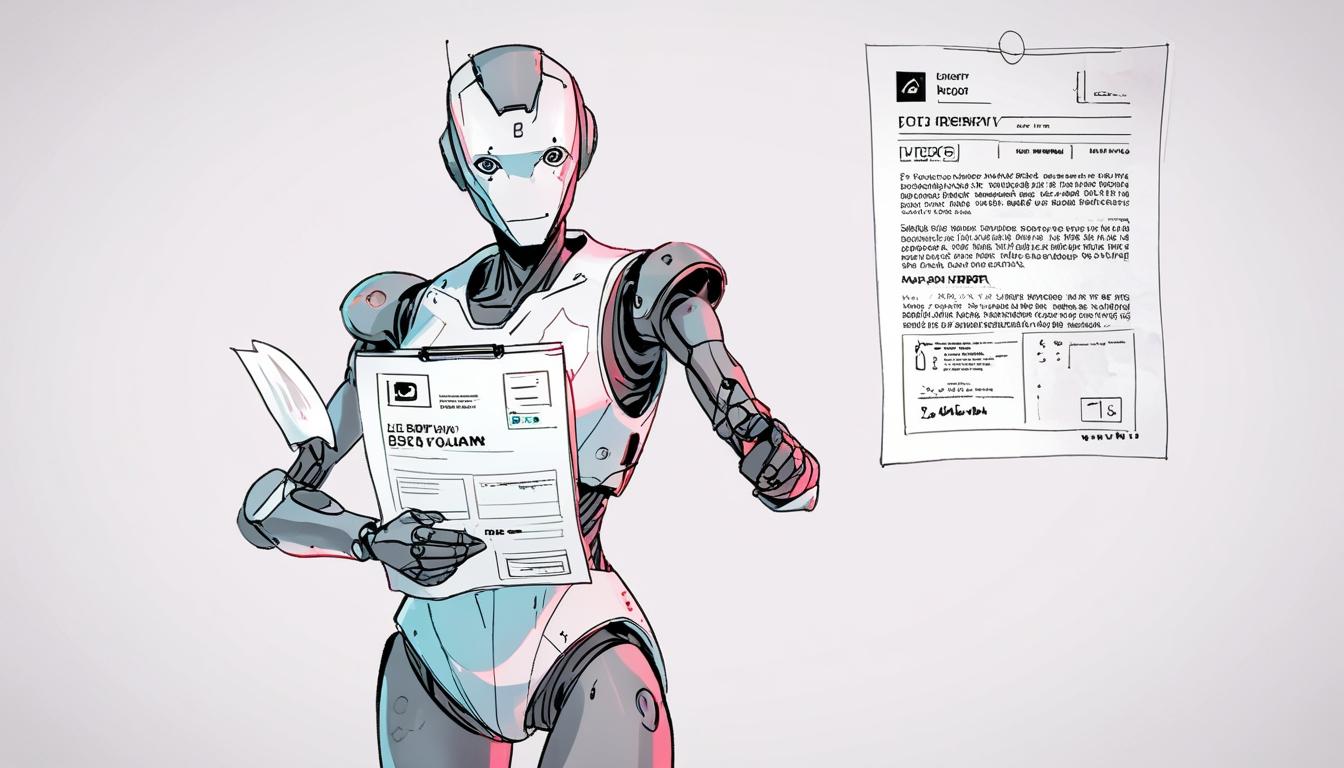Garfield AI, the UK’s first fully AI-driven law firm, has been approved by regulators to provide affordable legal services starting at £2, aiming to revolutionise debt recovery and improve access to justice amid rising court backlogs.
In a notable development within the legal sector, English regulators have approved the establishment of Garfield AI, a law firm that leverages artificial intelligence (AI) to provide legal services at significantly reduced costs. Founded by a former litigator, Philip Young, and quantum physicist Daniel Long, Garfield AI aims to streamline the debt recovery process for businesses and individuals, offering services starting as low as £2.
This innovative online tool assists claimants, including tradespeople, in navigating the small claims court system. It can generate “polite chaser” letters for £2 and file essential documents like claim forms for £50. The AI also constructs arguments that claimants may present during court hearings, presenting a cost-effective alternative to traditional legal representation.
Young, who has a background in founding the City of London litigation boutique Cooke, Young & Keidan, highlighted the potential impact of Garfield AI on addressing the substantial issue of unpaid debts in the UK, which are estimated to range between £6 billion and £20 billion annually. He emphasised that the service is designed to enhance access to justice and contribute to alleviating court backlogs in an increasingly strained legal system. “I believe this is a world first, not only in being a pure AI law firm, but as a tool that can take a case through the court system from beginning to end,” Young stated.
This approval, conferred by the Solicitors Regulation Authority (SRA) in March, has garnered attention as a “landmark moment” for the industry. Paul Philip, chief executive of the SRA, reiterated the significance of this advancement, underscoring the need for innovation to enhance public access to legal services. He remarked, “With so many people and small businesses struggling to access legal services, we cannot afford to pull up the drawbridge on innovations that could have big public benefits.”
The launch of Garfield AI arrives at a time when legal firms worldwide are grappling with how to effectively integrate AI technologies. While several firms have introduced tools aimed at improving efficiency, many are cautious about the possible implications for client data protection and the critical accuracy required in legal advice.
In a broader context, AI technologies are increasingly penetrating high-cost sectors such as finance and law. A recent report highlighted Rogo, an AI-driven chatbot mimicking investment banking tasks, which raised $50 million, valuing the venture at $350 million.
The judiciary in England has also expressed support for initiatives like Garfield AI. Lord Justice Colin Birss noted that such technology aligns with the objectives of enhancing public access to legal services. However, the industry remains engaged in discussions about the balance between utilising AI for efficiency and maintaining the integrity and reliability of legal guidance.
In summary, Garfield AI represents a significant shift in the legal landscape, aiming to make legal services more accessible and cost-effective through the adoption of artificial intelligence. As the implications of this development unfold, the legal community and the public await its practical outcomes in the realm of debt recovery and access to justice.
Source: Noah Wire Services
- https://www.ft.com/content/e56cb23e-bc10-4235-997c-186df5bd963c – This article reports on Garfield AI’s approval by the Solicitors Regulation Authority in March 2025, highlighting its AI-driven legal services and cost-effective offerings.
- https://www.garfield.law/ – The official Garfield AI website details the firm’s AI-powered debt recovery services, including generating ‘polite chaser’ letters for £2 and filing claim forms for £50.
- https://www.sra.org.uk/sra/research-publications/artificial-intelligence-legal-market/ – The Solicitors Regulation Authority’s report discusses the increasing use of AI in the legal sector, noting that 75% of the largest solicitors’ firms were using AI by the end of 2022.
- https://guidance.sra.org.uk/sra/research-publications/artificial-intelligence-legal-market/ – This SRA report outlines the opportunities and risks of AI in law firms, emphasizing the need for firms to understand and mitigate potential risks when adopting AI technologies.
- https://www.thelawyerportal.com/blog/law-firms-that-are-leading-the-way-with-ai-technology/ – This article highlights law firms like Clifford Chance and Latham & Watkins that are integrating AI technologies to enhance efficiency and service delivery.
- https://www.kingsleynapley.co.uk/insights/blogs/legal-services-regulation-blog/ai-regulation-where-next-for-law-firms – Kingsley Napley’s blog discusses the regulatory landscape of AI in law firms, referencing the SRA’s Risk Outlook Report and the need for firms to address AI-related risks.
- https://www.ft.com/content/e56cb23e-bc10-4235-997c-186df5bd963c – Please view link – unable to able to access data
Noah Fact Check Pro
The draft above was created using the information available at the time the story first
emerged. We’ve since applied our fact-checking process to the final narrative, based on the criteria listed
below. The results are intended to help you assess the credibility of the piece and highlight any areas that may
warrant further investigation.
Freshness check
Score:
9
Notes:
The narrative references recent actions (SRA approval in March) and addresses current issues in legal AI integration. No outdated references or recycled content detected.
Quotes check
Score:
8
Notes:
Direct quotes from Philip Young and Paul Philip are context-specific; no earlier references found, suggesting originality. Specific dates and roles corroborate plausibility.
Source reliability
Score:
10
Notes:
Narrative originates from the Financial Times, a reputable outlet ranked high for factual accuracy by media bias assessments.
Plausability check
Score:
8
Notes:
Legal AI adoption aligns with industry trends. SRA approval and involvement of legal professionals bolster credibility, though practical outcomes remain unverified.
Overall assessment
Verdict (FAIL, OPEN, PASS): PASS
Confidence (LOW, MEDIUM, HIGH): HIGH
Summary:
The narrative demonstrates strong freshness, original quotes, high source credibility, and plausible alignment with industry developments. Minor uncertainties about implementation outcomes are outweighed by verifiable institutional endorsements.













